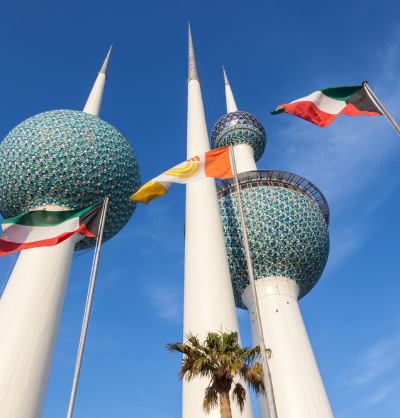The latest attacks by the Iranian-backed Houthi rebels on commercial ships in the gulf of Aden have renewed attention for maritime security, which is closely linked with the security of supply for the European economy, from raw resources over energy to consumer goods. Not just the Gulf of Aden is a point of concern here, but also the Gulf, where energy supply lines are obviously at the top of everyone’s mind.
Since a few years already, military initiatives have been deployed in a bid to increase security in the region. What hasn’t received a lot of attention, is how Western efforts are being duplicated while doing so.
IMSC
On the one hand, there is a U.S. led mission, called International Maritime Security Construct (IMSC). This was formed in 2019 in Bahrain, by the United Kingdom, Australia, Albania, Saudi Arabia, Bahrain, Lithuania, the United Arab Emirates, and the United States. It is specifically aimed at secure oil supply routes and was proposed by the U.S. in June after Iran was accused of attacking oil tankers in the Persian Gulf. Its operational arm has been Coalition Task Force SENTINEL. Currently, apart from Lithuania, it counts other EU member states, like Estonia, Latvia and Romania, but also Arab powers like Jordan have joined. Apart from the Gulf, it is also active in the Gulf of Oman, the Arabian Sea, the Gulf of Aden and the Southern Red Sea.
Its headquarters is in Bahrain, and its core aim is to “ensure that legitimate mariners are able to exercise their right to innocent passage and unrestricted use of international waterways without undue interference.” It has singled out Iran for its “continued harassment of vessels and interference with navigational rights in regional waters”, calling it “unwarranted, irresponsible and a present threat to maritime security and the global economy.” Only in July, the mission stopped Iran from seizing to merchant ships in the Gulf of Oman. According to the U.S. Navy, Iran has targeted 20 internationally flagged merchant vessels since 2021, highlighting the size of the problem.
EMASoH
Separately, there is a French-led initiative, headquartered in Abu Dhabi, at the French naval base, and comprises a diplomacy track and a military track. Its diplomatic track is called EMASoH, which stands for “European Maritime Awareness in the Strait of Hormuz”. Belgium, Denmark, France, Germany, Greece, Italy, the Netherlands, Norway and Portugal are currently taking part in it. Its military arm is called AGENOR, whose command has just been taken over by Belgian flotilla Admiral Hans Huygens, in succession of a French Vice Admiral.
EMASoH was launched back in February 2020 and is aimed at “guaranteeing a safe navigation environment in the Street of Hormuz, to contribute to de-escalation of tensions and to facilitate an inclusive regional dialogue in the Street of Hormuz”.
Diplomacy
Cornelius Adebahr, a nonresident fellow at Carnegie Europe, has pointed out that ultimately, lasting security in the Gulf region will only be delivered on the basis of improved inter-country relationships in the Gulf region.
In a July 2021 essay, he argues: “Any security arrangement for the region would (…) not be about setting up a ready-made equivalent of the Organization for Security and Cooperation in Europe for the Gulf; rather, it would be about agreeing on conflict de-escalation and confidence-building measures in an open-ended process that could conceivably lead to some sort of institutionalization. Importantly, such an initiative would have to come from the states concerned and then receive support and, eventually, guarantees from external powers.”
Over the two years, some progress has been made on that front, and it seems to persist despite the 2023 Gaza war. The culmination was in March 2023, when a Saudi-Iran rapprochement deal was signed in Beijing.
While the fact that decreasing tensions between these two regional powers are creating a positive development, it’s essential not to overlook the broader nuclear concerns. In this respect, let’s recall that the Saudi crown prince has threatened that his country would “follow suit as soon as possible”, in case Iran ever acquired a nuclear weapon.
The role of the United States
Part of the reason of the Saudi-Iranian rapprochement is U.S. President Biden taking some distance from Riyadh. Still, at the end of the day, Saudi Arabia remains a solid U.S. ally, despite all the talk of a BRICS currency replacing the U.S. dollar, simply because BRICS are hopelessly divided and because of the fact that the U.S. economy remains dominant, despite the deplorable money printing habits of its Central Bank. Also the rapprochement between the Saudis and Israel isn’t dead following the Gaza war. At the beginning of November, when the Arab world was all up in arms against Israel’s response to Hamas following the 7 October terrorist raid, Saudi Arabia helped to block an attempt to sever all diplomatic contact with Israel at an emergency meeting of the Arab League and the Organisation of Islamic Cooperation (OIC).
Together with the U.A.E., Bahrain, Sudan, Morocco, Mauritania, Djibouti, Jordan and Egypt, the Saudis reportedly rejected a number of demands: “to prevent the transfer of US military equipment to Israel from US bases in the region; to freeze all diplomatic and economic contacts with Israel; to threaten to use oil as a means of leverage; to bar flights to and from Israel through Arab states’ airspace; and to dispatch a joint delegation to the US, Europe, and Russia to push for a ceasefire.”
Also The Economist, among various media, has reported that “many Gulf states (…) would like Israel to get rid of Hamas”. They thereby however reportedly “fear that doing so will awaken extremism in their own countries. They want to see Iran’s “axis of resistance” of proxy militias wounded, but worry about being caught in the crossfire.”
It would therefore be wrong to be overly optimistic about the risk of the Gaza war turning into a regional conflict. An interesting development is in this respect that the United States has been urging Israeli restraint, with Vice-President Kamala Harris stressing: “Under no circumstances (…) will the United States permit the forced relocation of Palestinians from Gaza or the West Bank, the besiegement of Gaza, or the redrawing of the borders of Gaza.”
Conclusion
Maritime security may soon be at the top of the international agenda, with the ongoing Houthi attacks endangering the safety of supply lines to Europe. Over the last week, the rebels have attacked a dozen container ships and energy tankers, with the military response so far seemingly not able to stop them. While merging the current, scattered Western efforts to increase maritime security in the region could be a good first step, apart from drastic escalation to stop the Houthis, ultimately, the diplomatic table will need to provide a more lasting solution.








